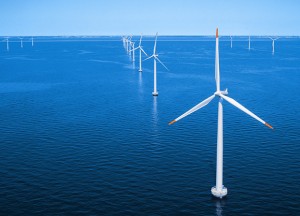Vestas scraps Kent offshore wind factory plan
 The UK’s emerging offshore wind sector has been dealt a major blow, after Danish turbine manufacturer Vestas scrapped plans to build a factory in Kent that had been expected to create 2,000 jobs.
The UK’s emerging offshore wind sector has been dealt a major blow, after Danish turbine manufacturer Vestas scrapped plans to build a factory in Kent that had been expected to create 2,000 jobs.Vestas and the Port of Sheerness today issued a joint a statement announcing they had halted plans for the facility at a 70-hectare site where the manufacturer had planned to build its new 7MW V164 offshore wind turbines.
The statement said Vestas remained committed to the UK’s wind energy market, and stressed that the company would continue to build and test blades at its R&D facility in the Isle of Wight.
“Vestas’ strong commitment to the development of both the offshore and onshore wind industries is not affected by this decision,” said Juan Araluce, chief sales officer for Vestas. “We will remain active across the two markets in the UK as they both continue to show considerable potential.”
But the company provided no indication as to where it will now manufacture its next generation offshore turbines.
The move comes a year after Vestas signed a deal to secure exclusive rights to the land in Kent, with a view to building a manufacturing and installation facility for turbines that would supply the proposed Round 3 wind farms that will be located in deeper waters off the UK coast.
Ditlev Engel, Vestas chief executive, previously told BusinessGreen that the company would push the button on the investment as soon as sufficient orders were confirmed for its 7MW turbine.
A spokesman for Vestas told Reuters that the company had failed to secure any orders so far.
“Such a factory is conditional on concrete orders in our order book and we have not announced any signed orders at this point,” he said. “We want a good pipeline of orders before we advance further and we do not have that at this point in time.”
Last month Vestas announced that had delayed the pace of development for the 7MW machine. A prototype is now expected to be installed in Denmark during 2014, instead of 2013 as originally expected, with production starting “when the market is ready”.
Round 3 developers are planning to start building the first wind farms in 2014-2016, however the bigger 6-7MW turbines are likely to be used for the later phases in 2018 onwards.
Trade association RenewableUK said it was disappointed by the news, but insisted the industry should not be downbeat as other manufacturers had factories in the pipeline, including Areva, which last week announced its ambition to set up a UK offshore wind turbine plant.
“Naturally we are disappointed with this decision, but as the world-leader in offshore wind, the UK remains an attractive place for manufacturers and members of the supply chain to have a base,” said Maria McCaffery, chief executive of RenewableUK.
“Investors in both projects and employment are poised to follow through on pledges but delivery on green jobs needs certainty and confidence in the market, with clarity on implementation arrangements and timescales.”
Mark Whitworth, chief executive of Peel Ports, said it would continue to seek contracts with other renewable energy companies.
“We are extremely disappointed that we have been unable to conclude the agreement with Vestas,” he said. “However, we remain fully committed to the strategy outlined for the Port of Sheerness of attracting major renewables manufacturers to complement our valued heritage business within the significant footprint of the Port.”
However, Vestas’ decision will crank up pressure on the government to confirm the policy environment offshore wind developers can expect to operate in and take further steps to live up to its pledge of making the UK the world’s most attractive investment environment for renewable energy.
A number of wind turbine firms, including US giant GE, are still mulling plans for new manufacturing facilities in the UK, but frustration is mounting at the government’s failure to clarify the level of support renewable energy projects can expect through its electricity market reforms and the growing criticism the sector is facing from some Conservative MPs.
Friends of the Earth energy campaigner Guy Shrubsole said the news should act as a wake up call for the government to boost its support for offshore wind energy.
“The government is costing the UK jobs by failing to come up with a decent Energy Bill that supports renewables and gives investors certainty,” he said. “Instead it’s committing the country to a costly dash for gas that will bust our carbon targets and keep us dependent on imported gas.
“The government needs to see this as a dangerous warning that it’s on the wrong path - and ensure it radically reforms the draft Energy Bill to deliver us clean, British energy and green jobs.”
You can return to the main Market News page, or press the Back button on your browser.

